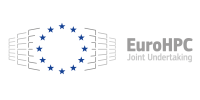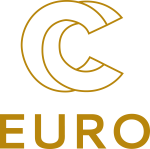- Indico style
- Indico style - inline minutes
- Indico style - numbered
- Indico style - numbered + minutes
- Indico Weeks View
[ONLINE] Workshop on Quantum Computing: Hybrid Systems
→
Europe/Prague
[ONLINE]
[ONLINE]
,
Description
Annotation
The practical use of quantum computer requires the creation of so-called Hybrid System, which (in simplified terms) includes not only a quantum computer but also a classical one. This is because a quantum computer is only suitable for the key part of the task in which it has exponential acceleration, and therefore a classical computer is needed to prepare the input data and process the output data. Thus, Hybrid Systems are essential for any application of quantum computing.
The scope of this workshop is the integration of quantum and classical computers into one Hybrid System. Lectures on this topic will be given by experts from European companies such as Xavier Geoffret from IQM, which manufactures quantum computers, and Cyril Allouche from ATOS, which has developed a hardware simulator of a quantum computer and also manufactures components for supercomputing centres. Finally, there will also be a talk on the basics of one particular application of quantum computing: variational quantum algorithms, given by Petr Zapletal from the University of Erlangen-Nuremberg in Germany.
This workshop is intended for more advanced participants who have already mastered the general basics of quantum computing and want to learn more about the practical applications of quantum computers.
Agenda
Bringing quantum acceleration to supercomputers
Speaker: Xavier Geoffret (IQM, Finland)
Abstract: In a world shifting towards sustainable growth, HPC has a significant challenge: delivering on the growing demand for increased computational power, while limiting energy consumption. Quantum computers promise to meet these challenges with exponential performance improvement for key applications and are anticipated to be the next big technological breakthrough in the field. In this talk, we will discuss the path to integrating quantum acceleration into supercomputers, and the critical steps and decisions required to build the quantum future of HPC.
About the speaker: Xavier Geoffret has been working in the field of HPC for more than 20 years. He has held various customer-facing positions, as a consultant, architect, and bid manager for large and complex HPC and storage projects at SGI (now HPE), Bull, and Atos. He was then responsible for pre-sales activities on quantum projects for 3 years at Atos. He is currently the Technical Sales Manager for IQM Computers.
Challenges of hybridization of Quantum computers and HPC
Speaker: Cyril Allouche (ATOS, France)
Abstract: Quantum computing is not a substitute for classical computing, it is dedicated to very specific tasks that it can accelerate exponentially. Quantum processors will therefore have to coexist with traditional processors, which will retain control over the execution of instructions. This vision of quantum "coprocessors", on the model of GPUs, is now a consensus among researchers and early adopters. However, the system architecture of this hybridization remains an open subject and ultimately very little addressed. This presentation will attempt to expose the problem and present the directions taken by Atos.
About the speaker: Dr. Cyril Allouche is a Fellow and VP in charge of quantum computing R&D at Atos. After a Ph.D. in Computer Science 20 years ago, he took on several R&D management roles in the high-tech industry. In 2016 he initiated the Atos Quantum Research Lab, which develops the Quantum Learning Machine (QLM), an advanced platform for research and experimentation of Quantum Computing in an HPC environment, which is now used by more than 30 high-level research organizations in all 5 continents.
Variational quantum algorithms
Speaker: Petr Zapletal (University of Erlangen-Nuremberg, Germany)
Abstract: While the development of fully-fledged quantum computers remains a major challenge, noisy intermediate-scale quantum (NISQ) computers offer an alternative route toward quantum advantage in the areas of quantum chemistry, optimization problems, many-body physics, and machine learning. Particularly promising candidates are variational quantum algorithms (VQAs) which exploit NISQ devices in a hardware-efficient manner to prepare and variationally optimize trial solutions to given tasks [M. Cerezo et al., Nat. Rev. Phys. 3, 625 (2021)t]. In this talk, I will introduce the basic concepts of VQAs, discuss the applications of VQAs and give an overview of our research activity focused on the development of VQAs.
About the speaker: After reading physics at Palacky University Olomouc, Petr Zapletal received his master’s degree from the University of Erlangen-Nuremberg and did his Ph.D. at the University of Cambridge. He is now a postdoctoral researcher in the group of Michael Hartmann at the University of Erlangen-Nuremberg, where he is focusing on developing algorithms for NISQ computers and superconducting quantum computing hardware.
Registration
Acknowledgments


This event was supported by the EuroCC project. This project has received funding from the European High-Performance Computing Joint Undertaking (JU) under grant agreement No 951732. The JU receives support from the European Union’s Horizon 2020 research and innovation program and Germany, Bulgaria, Austria, Croatia, Cyprus, the Czech Republic, Denmark, Estonia, Finland, Greece, Hungary, Ireland, Italy, Lithuania, Latvia, Poland, Portugal, Romania, Slovenia, Spain, Sweden, the United Kingdom, France, the Netherlands, Belgium, Luxembourg, Slovakia, Norway, Switzerland, Turkey, Republic of North Macedonia, Iceland, Montenegro. This project has received funding from the Ministry of Education, Youth and Sports of the Czech Republic (ID:MC2101).

All presentations and educational materials of this course are provided under the Creative Commons Attribution-ShareAlike 4.0 International (CC BY-SA 4.0) license.
Support
